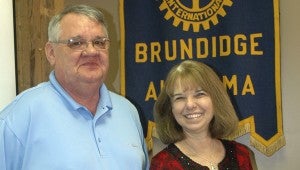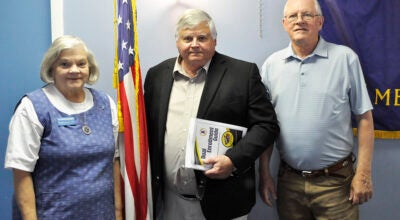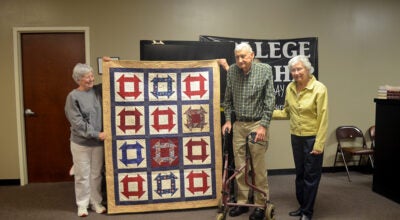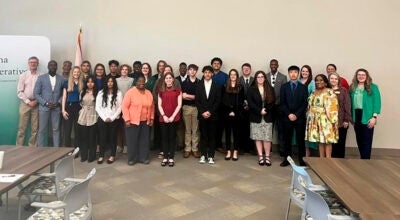Brundidge rotarians ‘ACCESS’ distance learning at meeting
Published 3:00 am Thursday, March 26, 2015

Messenger Photo/Jaine Treadwell
Reba Davis, ACCESS director, Extended Learning Center, in Troy, was the guest of Rotarian Harry Sanders at the Brundidge Rotary Club.
A paragraph pulled from “Trade Arabia Business News Information” dated Tuesday, February 17, 2015 highlighted Alabama’s ACCESS program as an “innovative government program focused on improving performance of students in rural Alabama through innovative programs like distance learning and video conferencing.”
Reba Davis, ACCESS director at Troy University’s Extended Learning Center, was the program guest of Rotarian Harry Sanders at Wednesday’s meeting of the Brundidge Rotary Club.
Davis said ACCESS (Alabama Connecting Classrooms, Educators and Students Statewide) was launched in 2004 and is available to all Alabama public high school students.
The State of Alabama’ vision for ACCESS Distance Learning is that the state will provide equal access to high quality instruction to improve student achievement through distance learning.
Davis said the distance learning program is doing just that and its success is recognized nationally and beyond the nation’s borders.
“ACCESS classes are a way for students to take classes that are not offered at the home school,” Davis said. “All courses are aligned to the state course of study and taught by Alabama certified teachers and highly qualified teachers. We have outstanding teachers and many of them are retired teachers.”
Davis said a facilitator is available in the classroom to aide in maneuvering websites and help students better understand the content and instruction of each class.
In the 2013-2014 school year, Alabama’s high school graduation rate rose to 85 percent and ACCESS distance learning played a crucial role in achieving that high number.
Davis said many rural and low-income schools have limited course offerings for students.
“In the past, specialty courses such as physics, calculus and German were not available to students in many schools,” she said. “However, distance learning programs make these courses and others available to students in schools that have not offered them in the past.”
Some schools have difficulty in offering all courses needed for the Alabama High School Diploma.
Davis said ACCESS offers 92 courses that counselors may choose from to assure that their students have the required credits to graduate.
ACCESS offers 11 advanced placement courses and the availability of these courses play a role in Alabama being ranked number one for advanced placement progress and increased AP test scores.
Davis said ACCESS started 10 years ago with 1,200 students. Today, ACCESS has 12,000 students with enrollment in 25,000 classes.





